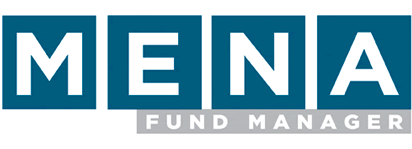DIFC chief executive Jeff Singer is fully behind plans to turn Dubai into a hub of Islamic finance, as well as making it the base for increasing numbers of home grown investment managers
By James Brockett
The DIFC expects to attract significant numbers of Islamic financial firms as part of the next stage of its growth, as the authority backs efforts to turn Dubai into an Islamic financial hub, DIFC chief executive Jeff Singer has told Mena FM.
Dubai’s ruler Sheikh Mohammed bin Rashid al Maktoum recently launched the Islamic Economic Strategy, which envisages Dubai becoming the ‘capital of the Islamic economy’ within three years. Three of the DIFC’s board members are serving on the committee for the initiative, and Singer said that Dubai and the DIFC have “all the ingredients” to develop into a multi-faceted hub for Islamic finance.
“At a time when the world’s Islamic population is projected to grow by 35 per cent by 2030, the Islamic finance industry is definitely at a turning point,” said Singer. “Islamic Finance currently accounts for approximately 1.5 per cent of total assets worldwide and has demonstrated one of the fastest global growth rates of between 15 and 20 per cent a year. With the market expected to double to $2.5 trillion by 2017, it clearly has immense potential.”
Of the 318 DFSA authorised firms, currently there are 23 engaged in Islamic finance, a number which Singer expects to see rise rapidly.
“Even though the UAE is a leader in Sharia compliant financial bonds, there are a host of other products which are available in other Islamic hubs which are less developed in the UAE,” continued Singer. “These include wealth management, retirement and healthcare financing, and debt financing for households. This is certainly a pipeline that we expect will strengthen further as we see the UAE and the DIFC evolve into an Islamic Finance hub.”
Rather than having a Central Sharia Board, the freezone’s regulator, the DFSA, requires firms to nominate their own Sharia supervisory Board and make appropriate disclosures to clients. Singer said this provides “optimum flexibility” for firms to either operate as a fully Islamic institution or offer products through an Islamic window.
The DIFC recently reached 1,000 companies in total, a figure which already includes 7% growth this year, and Singer said its aim is to double the total to 2,000 in the next five years. In the fund industry, there are 62 DIFC-based firms marketing a total of 1,524 funds to investors, while another 72 companies manage assets from the DIFC. He said that as the ‘home grown’ financial services industry matures, there was no doubt that investment management was an “important segment of growth” for the DIFC.
“What we are seeing is early stage recognition of the potential to leverage the business friendly environment of the DIFC to produce locally domiciled products for investments into the region,” said Singer. “In addition, it’s a way of making investments made overseas work twice – so still diversifying into overseas markets, but with the assets booked regionally and contributing to the local economies.”
He said that investment firms were now realising the “naturally compelling logic” of having more expertise based in the geographical zone to match the level of service demanded by investors; the MSCI upgrade of the UAE could be a further catalyst. “We see great opportunities for growth in this area as regional capital markets develop and competition drives the need for portfolio managers and strategists to be based here,” he concluded.


